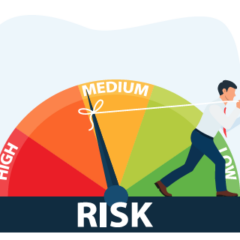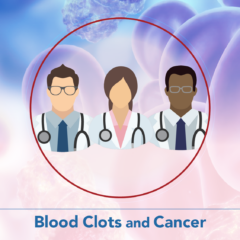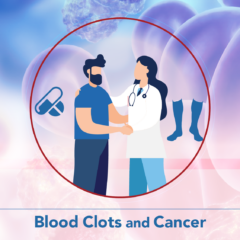Last updated on
Blood Clots and Cancer: Am I at risk of getting a blood clot?
Watch these videos to learn more about cancer and thrombosis (blood clots), and what you can do to prevent blood clots.
Doctors don’t always know why blood clots develop. However, knowing what your risk factors are can often help you understand why you have a blood clot and how to prevent one in the future.
The risk factors listed below are the most common, but there are other less common risk factors – and risk factors we still don’t know about.
Cancer – People with cancer are more likely to develop blood clots than people without cancer. Cancer itself increases your risk of getting a blood clot, and so do the treatments for cancer, including surgery and many chemotherapy drugs.
Hormone Therapies – Birth control pills and other hormone treatments can raise a woman’s risk of thrombosis. However, the risk is small.
Surgery – Your risk for developing a blood clot is higher during and after surgery. To prevent blood clots after surgery, some patients are temporarily placed on blood thinners and wear compression socks.
Genetics – Genes are the building blocks of life we get from our parents. Abnormal genes that are passed down a family line can increase the risk of blood clots. There is research in the area of genes and blood clots that may inform new treatments.
Swelling – Swelling from a blood clot often occurs when the clot is in the leg or in the upper arm. The blood clot can completely or partially block the vein, making it harder for the blood to flow back to the heart, which can cause tightness and swelling.
Not being active – People who are not active are at risk of blood clots. People who are not able to move, such as patients in the hospital or on bed rest are especially at risk. Even people who are active can be at risk if they sit for a long time, like on a long plane ride.
Obesity – Being overweight doubles your chance of developing blood clots. Eating healthy foods and getting more exercise can help lower your weight and lower the risk of blood clots.
Smoking – Smoking increases your chance of blood clots and many other health problems. If you smoke, talk to your doctor about quitting.



